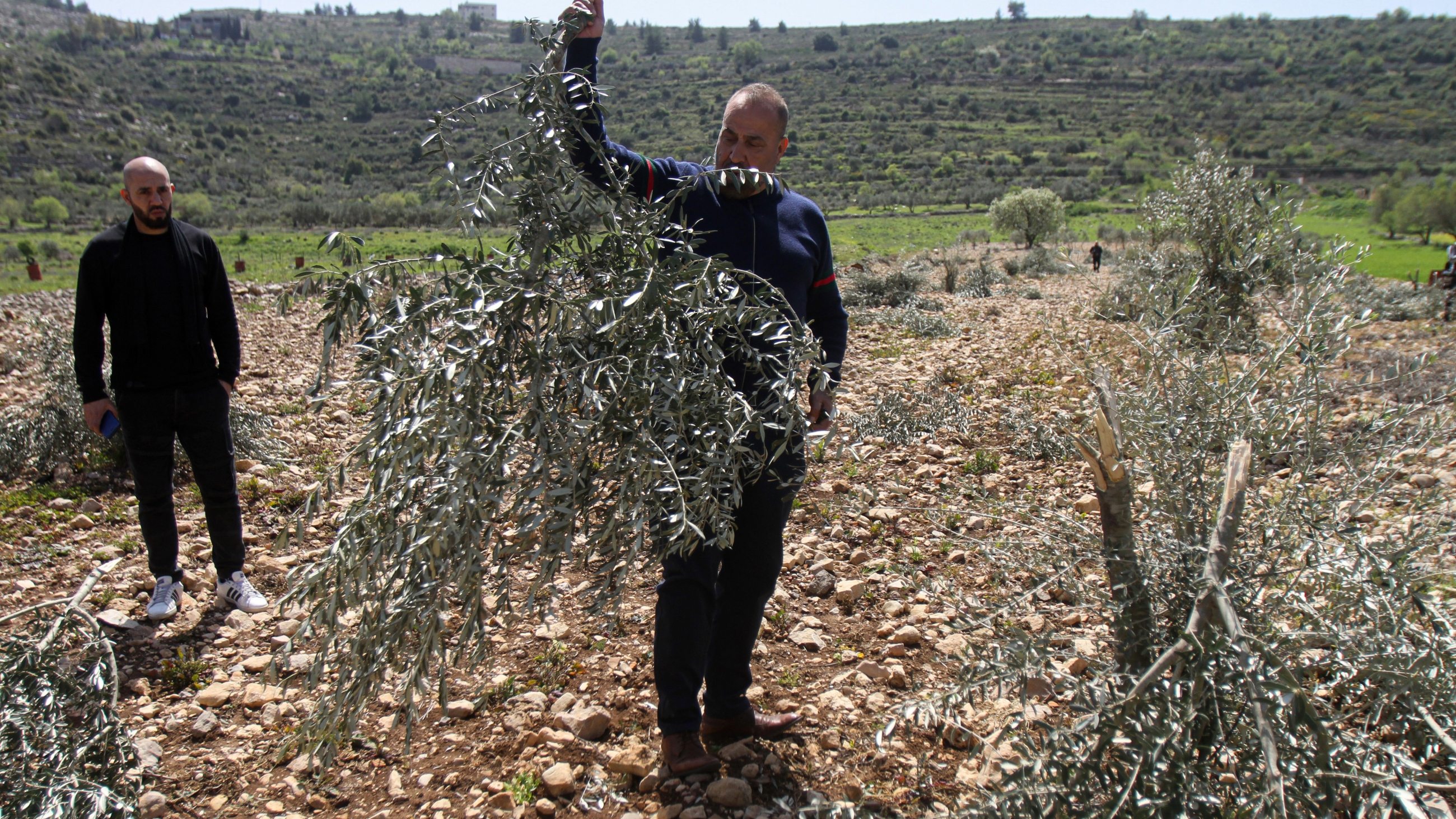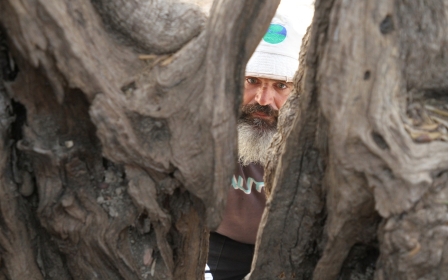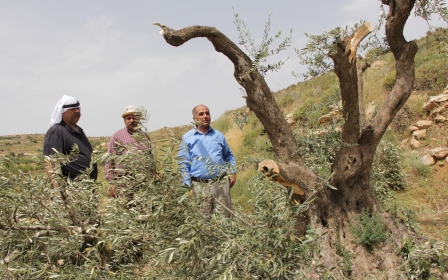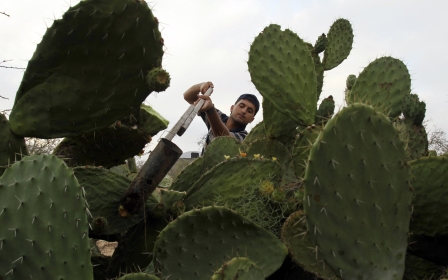Israeli settlers destroy 5,000 Palestinian trees in five months

Israeli settlers damaged more than 5,000 trees in Palestinian villages across the occupied West Bank in the last five months.
UN data shows that 4,000 trees were damaged in 84 incidents between 20 December 2022 and the end of April.
Another 1,150 trees were vandalised in the last week, according to figures compiled by the Israeli newspaper Haaretz.
Palestinian farmers and their lands are a target of repeated attacks by Israeli settlers, which include physical assault, vandalism and theft, especially during harvest seasons, according to the UN.
Almost half of the Palestinian agricultural lands are planted with an estimated 10 million olive trees in the West Bank and besieged Gaza Strip.
New MEE newsletter: Jerusalem Dispatch
Sign up to get the latest insights and analysis on Israel-Palestine, alongside Turkey Unpacked and other MEE newsletters
While Israeli settler violence against Palestinians is common in the West Bank, attacks have grown in recent years at an alarming rate, according to UN human rights experts.
At least 849 attacks were recorded in 2022 - 228 of which led to casualties. Around 13,130 Palestinian-owned olive trees were damaged in that period.
Human rights groups have previously accused Israeli authorities of enabling settler violence and failing to prosecute Israeli offenders or protect Palestinians.
“Armed and masked Israeli settlers are attacking Palestinians in their homes, attacking children on their way to school, destroying property and burning olive groves, and terrorising entire communities with complete impunity,” UN experts said last year.
“Disturbing evidence of Israeli forces frequently facilitating, supporting and participating in settler attacks, makes it difficult to discern between Israeli settler and State violence,” they added.
Nearly 700,000 settlers live in more than 250 settlements and outposts across the West Bank and East Jerusalem in violation of international law.
Middle East Eye delivers independent and unrivalled coverage and analysis of the Middle East, North Africa and beyond. To learn more about republishing this content and the associated fees, please fill out this form. More about MEE can be found here.




